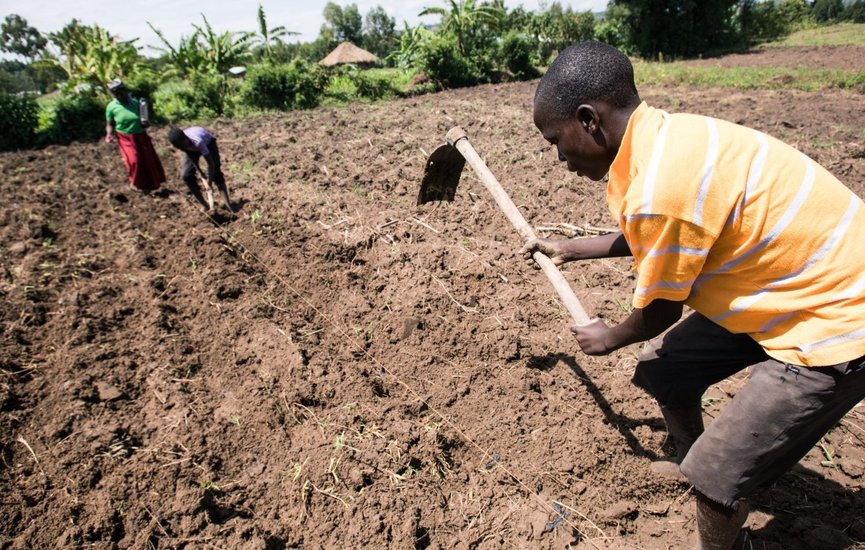The recent summit on food security in Africa highlighted several critical issues impacting the continent's agricultural sector, with a particular focus on the effects of climate change, sustainable farming practices, and the need for regional cooperation.
Climate Change Impact
Extreme weather patterns, including prolonged droughts and flooding, have devastated food production in several African countries, especially in the Horn of Africa—encompassing Somalia, Ethiopia, and Kenya—as well as parts of West Africa. Shifting rainfall patterns and extended dry spells have decimated crops such as maize, wheat, and rice. According to the United Nations World Food Programme (WFP), over 60 million people across the continent are currently facing food insecurity. This alarming statistic underscores the urgent need for solutions to address the challenges posed by climate change.
Sustainable Agriculture
Experts at the summit stressed the importance of adopting climate-smart agricultural practices to combat the adverse effects of climate change. These include cultivating drought-resistant crops, improving irrigation systems, and embracing agroforestry. Such initiatives aim to protect the land and reduce dependence on unpredictable weather patterns. Furthermore, governments were urged to prioritize funding for agricultural innovation, with a specific focus on precision farming technologies that can optimize crop yields even in the face of challenging climates.
Regional Cooperation and Trade
A key theme of the summit was the need for greater regional cooperation to facilitate the free movement of goods and services, particularly food products. Trade barriers and inconsistent policies between neighboring African countries have hindered the effective distribution of food in crisis areas. The African Continental Free Trade Area (AfCFTA), designed to create a single market for goods and services, was emphasized as a vital tool for reducing food price volatility and improving cross-border supply chains. By fostering regional cooperation, African countries can better address food insecurity and ensure more efficient trade practices.
Humanitarian Aid
While the summit acknowledged the importance of international humanitarian aid, there was broad consensus that long-term solutions should focus on building local capacity rather than relying solely on external support. Countries such as South Sudan, Sudan, and Somalia, which are dealing with both political instability and severe hunger, were identified as areas where immediate aid is crucial. However, the overarching goal is to empower these nations to become self-sufficient in food production, reducing their dependence on foreign assistance in the long run.
Women and Youth Empowerment
The summit also emphasized the critical roles that women and youth play in agricultural development. There were calls to increase their participation in agriculture, especially in smallholder farming, which provides sustenance to millions of families. Financial support programs targeting young entrepreneurs and women farmers were recommended to foster innovation and leadership in sustainable agriculture. By empowering women and youth, Africa can build a more resilient agricultural sector that is capable of responding to future challenges.
Kenyan President William Ruto, who hosted the summit, highlighted the need for Africa to move away from a culture of dependency on international aid and towards self-reliance in food production. In his keynote address, Ruto stated, "We must ensure that every African country can feed its people without relying on external actors." Dr. Akinwumi Adesina, President of the African Development Bank, also stressed the urgent need for investments in infrastructure to reduce food wastage, which currently stands at over 40% due to inadequate storage and transportation systems.
Local farmers at the summit voiced their concerns about access to market prices and credit facilities, which are essential for investing in modern farming technologies and practices. Many small-scale farmers in countries like Uganda, Tanzania, and Mozambique struggle to keep up with the challenges of climate change and fluctuating crop prices, which often threaten their livelihoods.
As food insecurity continues to worsen across Africa, it is clear that a collaborative approach is needed to address the multifaceted challenges facing the continent. This includes the adoption of sustainable agricultural practices, the strengthening of regional trade agreements, and the promotion of climate-resilient farming techniques. While international support remains crucial, there is a growing consensus that the future of Africa’s food security lies in the hands of local farmers, youth, and women who will drive the necessary changes in agricultural practices. The African Union (AU) will play a central role in monitoring the implementation of these policies, with the next summit scheduled for 2026 in Abuja, Nigeria, to evaluate progress.
